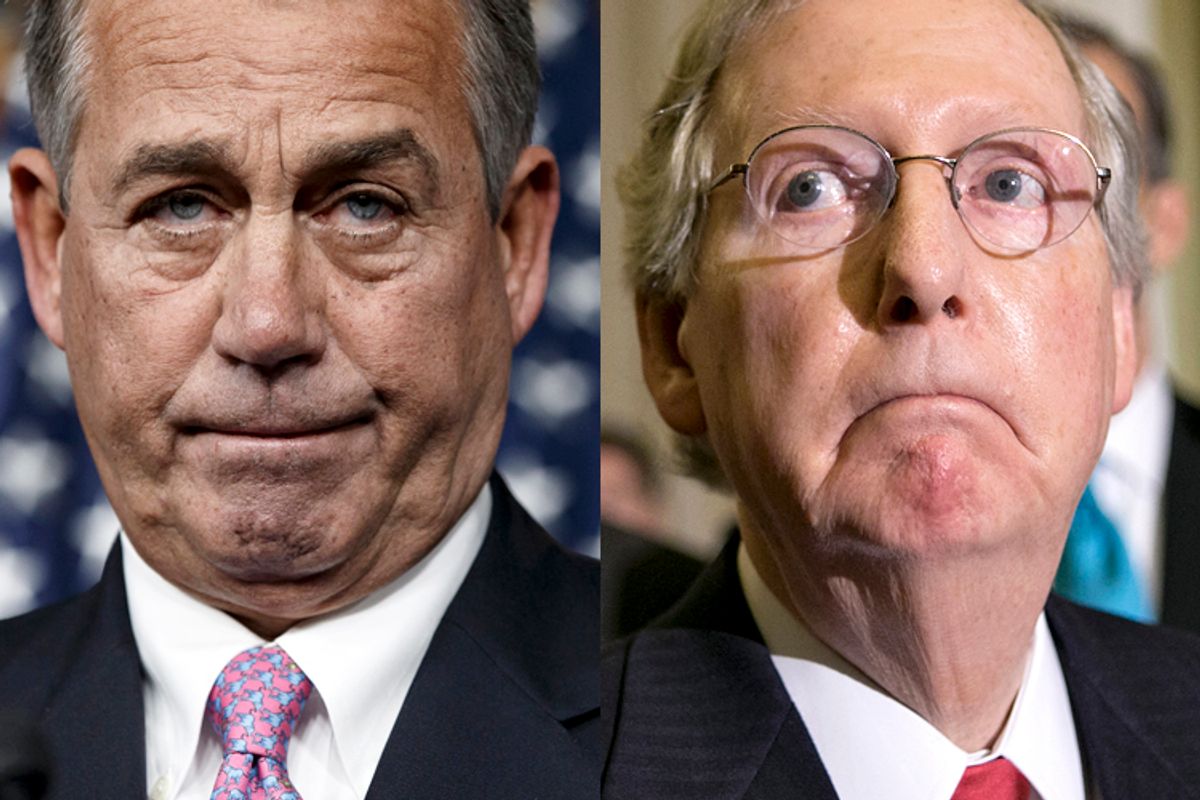The Pew Research Center unveiled a new survey of registered voters Thursday, finding that while the GOP's brand remains tarnished, voters trust Republicans more than Democrats in several broad issue areas.
One of the largest GOP advantages was on the question of which party voters trusted more to handle the federal budget deficit. By 48 to 33 percent, voters picked the Republican Party. After all, hasn't President Obama given us "trillion dollar deficits as far as the eye can see," as House Speaker John Boehner proclaimed in 2012?
Well, no, actually. Earlier this month, the Congressional Budget Office released figures indicating that the deficit for fiscal year 2014 was $486 billion, or just 2.8 percent of GDP. That's below the 3.1 percent of GDP historical average from 1974 to 2014, and it's well below the 3.7 percent of GDP forecasters predicted for fiscal 2014 a year and a half ago, Justin Wolfers points out. During the Reagan administration, the federal budget deficit reached 5.7 percent of GDP, while it peaked at 3.7 percent of GDP during the George W. Bush administration.
After hitting a high of 9.8 percent of GDP during the Great Recession -- when the economic downturn held back consumption and led to plummeting revenues -- the Obama administration has presided over a marked decline in the budget deficit. In fact, the deficit has probably fallen too quickly, given that the premature withdrawal of fiscal stimulus has hindered a faster recovery. And if you ask voters to rank their policy priorities, job creation comes well ahead of reducing the budget deficit.
But why do voters prefer the GOP when it comes to the deficit, given that we've seen smaller deficits or even surpluses during recent Democratic administrations and larger deficits in Republican administrations? A large part of the reason may be that voters tend to see deficits as the presidential incumbent party's "problem," so they're inclined to say they trust whichever party is out of presidential power to handle the issue. (Indeed, at this point in George W. Bush's presidency, the public trusted Democrats on the issue.) Moreover, as Paul Krugman has argued, there's a bias in the media against reporting "good news" about the deficit; headlines about red ink into oblivion tend to play far better than reports on yet another month of a steady decline in the deficit.
It's worth re-emphasizing, though, that the deficit is not nearly as salient a political issue as the general health of the economy, and that the latter often depends on temporary increases in the former. As for the long term? That picture is starting to look better -- thanks in large part to slower rates of growth in spending on health care under Obamacare. Will the GOP's deficit hysterics embrace the law? Don't hold your breath.

Shares